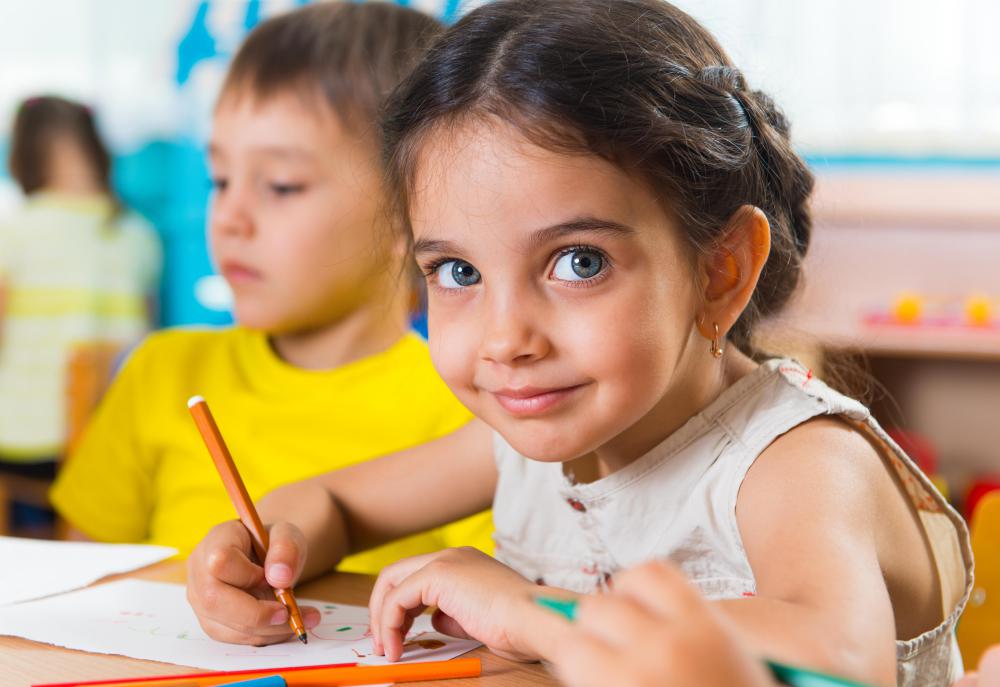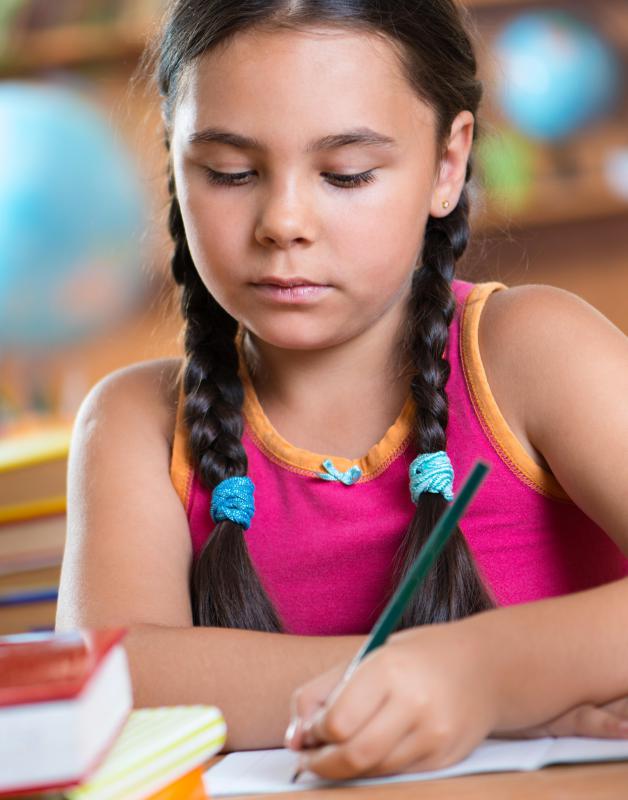At TheHealthBoard, we're committed to delivering accurate, trustworthy information. Our expert-authored content is rigorously fact-checked and sourced from credible authorities. Discover how we uphold the highest standards in providing you with reliable knowledge.
What Factors Affect Creative Development in Early Childhood?
There are many different factors that affect creative development in early childhood, including age and upbringing. Creative development in early childhood refers primarily to the process of a child exploring using creative thought, not the development of any particular creative aesthetic. Having opportunities for creative expression and being praised for creative expression may inspire more interest in artistic pursuits later in life. This is not, however, a strict determination of a child's later artistic talents.
For young children, creative development is the development of imaginative abilities as expressed through activities associated with the arts. This can include visual art, music, and storytelling. In some cases, development is affected by the way young minds are designed to see the world, resulting in specific patterns of play common to certain age groups.

One of the most important factors that affects creative development in early childhood is age. Children of different ages have different creative abilities and different ways of thinking about the world. For example, at a certain stage of development, children do not differentiate between the tool being used to draw and the image being drawn, so they may play with the drawing tool as though it is the object being represented. Young children also do not always understand the difference between a drawing surface and other surfaces, which is also usually a factor of age.

Another factor that affects creative development in early childhood is opportunity. Children who are encouraged to engage in creative play often develop more quickly in this area than children who are not. It is important to note, however, that talent and creativity are not directly related at this stage. A child who cannot accurately represent his or her ideas in drawing may be highly creative but lack coordination skills. It is also common for children to excel in different areas of creative play.

Factors affecting creative development can also include learning disabilities. Some children who have learning disabilities do not show creative development as readily as other children. In certain cases, a physical disability may be causing the appearance of a learning disability, as is the case with deaf children who do not readily learn to speak or sing.

Praise may play a large role in creative development in early childhood, as praise structures the ways in which children understand creative work. Asking children what they are trying to draw, for example, plants the seeds of actually approximating what real-world objects look like. Encouraging children to play musical instruments in certain ways can also steer results in specific directions. Adult influences can play a role in creative development, but forcing specific types of play can also prevent progress.
AS FEATURED ON:
AS FEATURED ON:















Discussion Comments
It's important to realize that indiscriminate praise can actually be harmful for kids. I taught a class of five year olds for a while and one of them had anxiety issues every time she wasn't praised for something. If I told another child her picture was pretty, this girl needed to be told it too, even if she wasn't finished yet.
If someone else got picked for something she would become depressed, like she had done something wrong.
Praise kids on specifics. Don't just tell them constantly that they can do no wrong.
@indigomoth - Yeah, I think that people often make the mistake of putting someone in a box when it comes to certain abilities. They might say that they are no good at math, for example. But everyone is good at math, they just haven't learned it yet.
It's the same with art and writing and music. They are skills that can be learned. Maybe you won't end up being Picasso or Mozart, but anyone can take some joy in being able to play the piano.
I think we owe it to our kids to let them explore those kinds of activities without judging how good or bad they happen to be at them.
I think one of the most important things when it comes to developing creativity is to make sure that you encourage your children to make mistakes. If they aren't making mistakes, it means they aren't trying anything new.
Kids are naturally creative. But if they try something and it doesn't work and they are discouraged by that (either on their own or by the reactions of people around them) then they will stop trying.
I think that people have this idea that creativity is a skill or some kind of magical talent that some people have and other people don't. In reality everything creative is just mixing and remixing ideas that are all around us and in order to keep doing that until you find a new idea that works, you have to be willing to make mistakes.
Post your comments